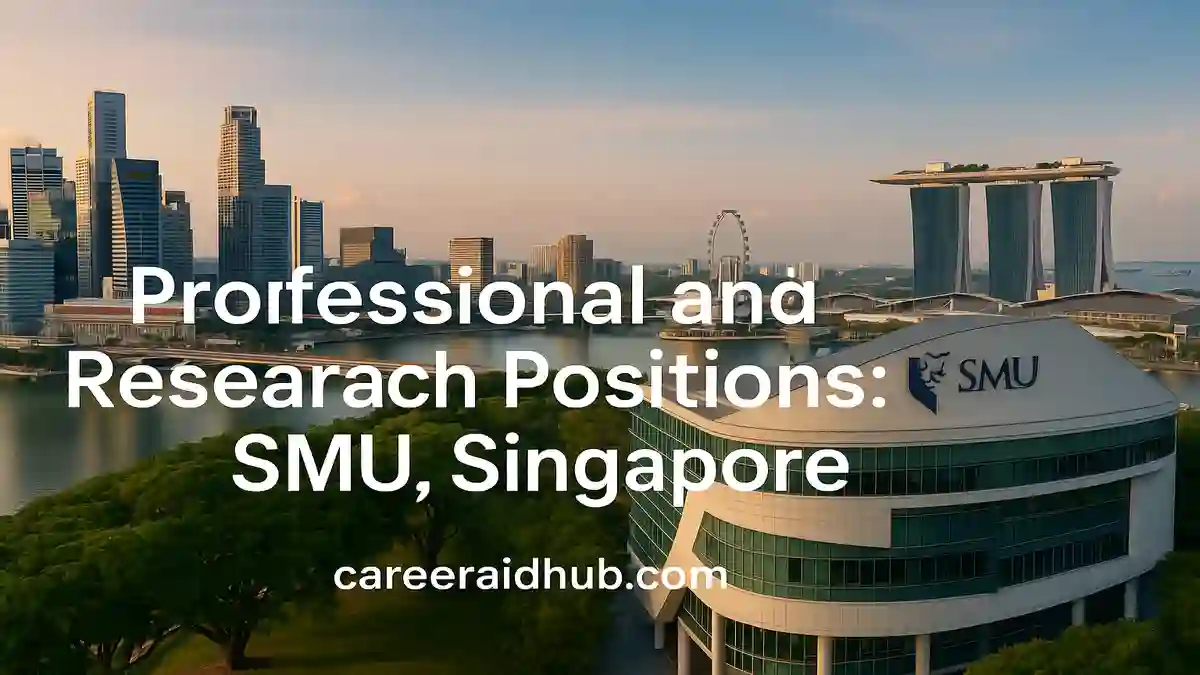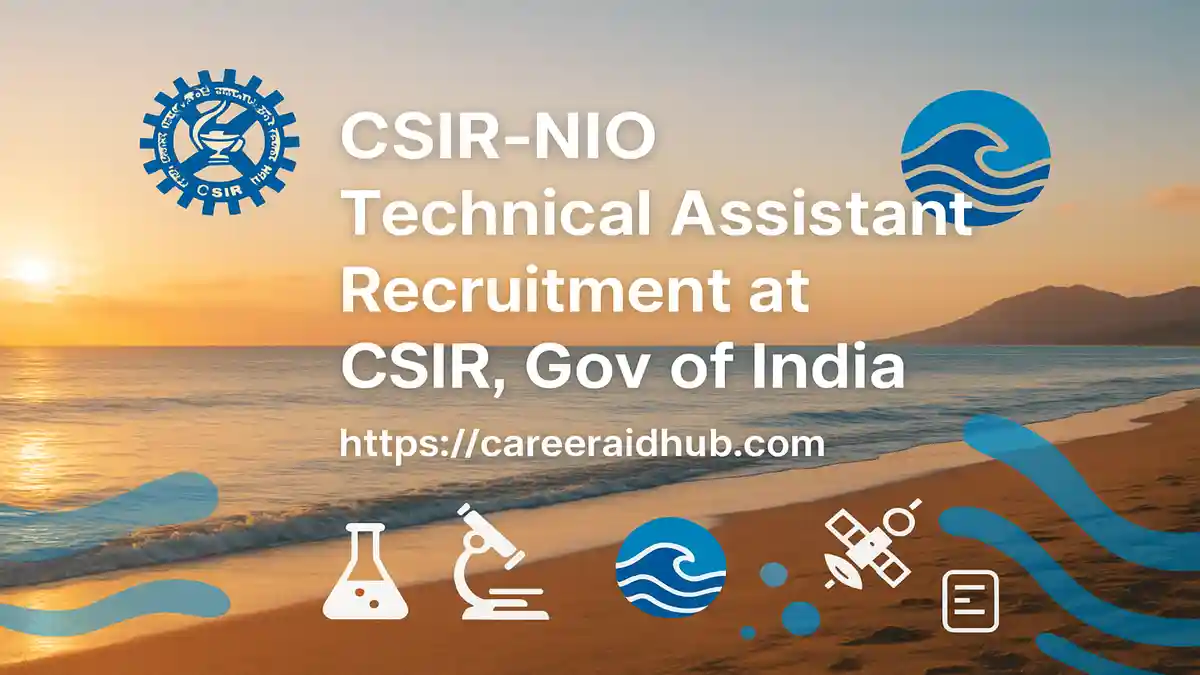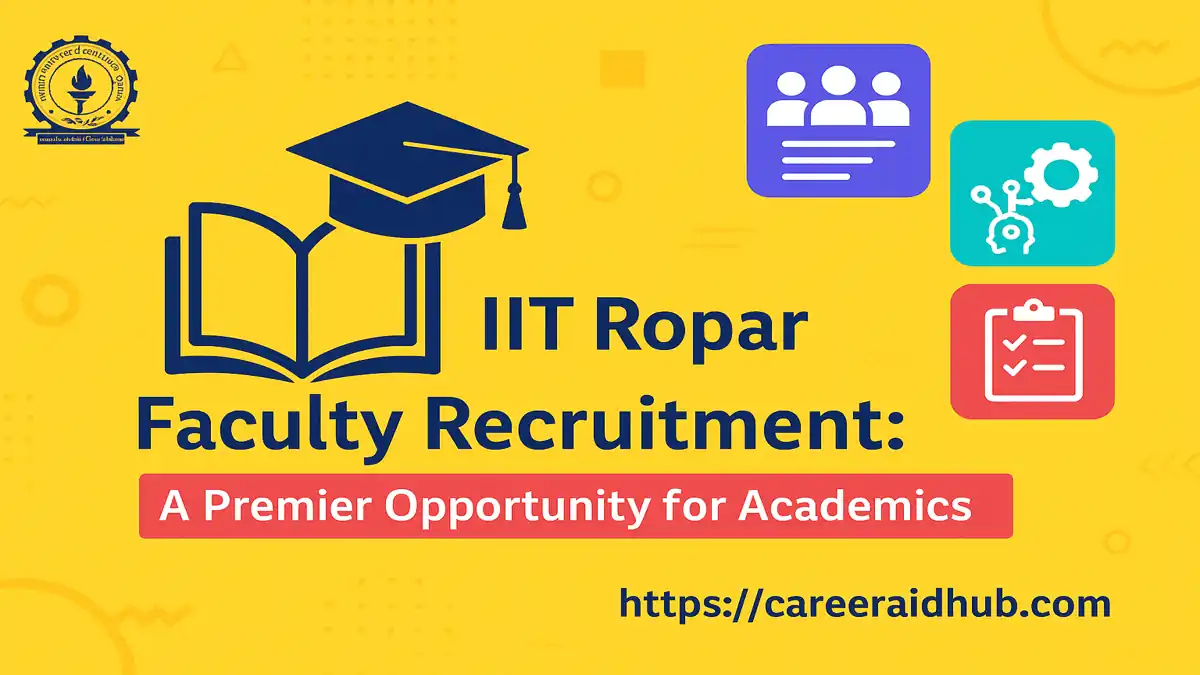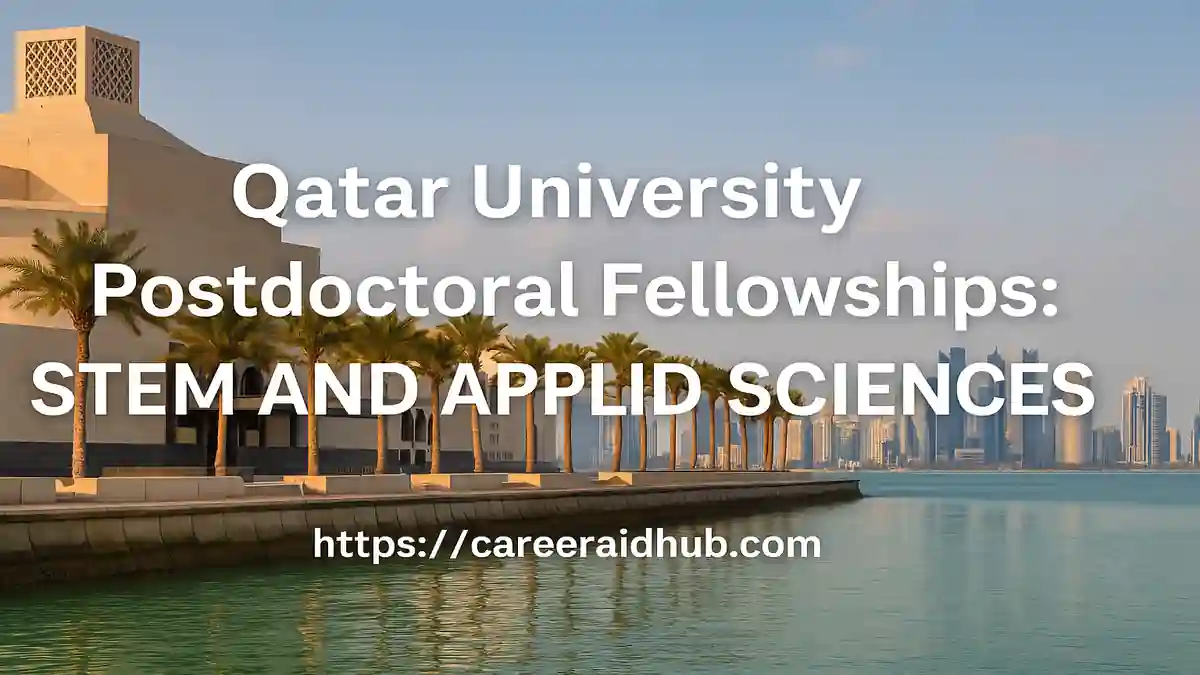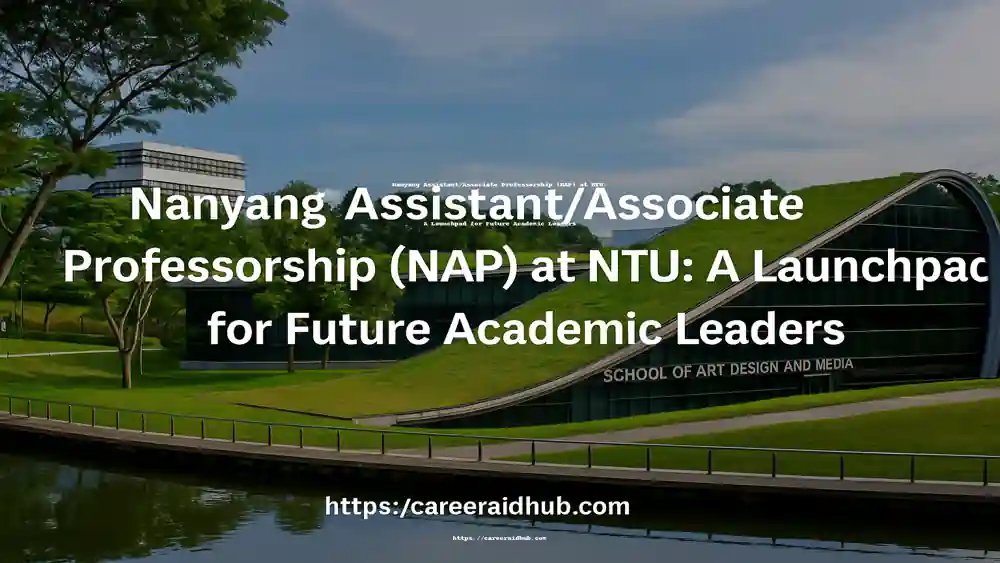Build Your Career at Singapore Management University: Professional & Research Positions
Singapore Management University (SMU) has emerged as one of Asia’s leading urban universities, recognised for its strong industry partnerships, innovative teaching, and vibrant city-centre campus. Situated in the heart of Singapore’s business district, the university operates at the intersection of academia, industry, and government, offering staff a uniquely connected work environment. According to the official Careers@SMU portal, the institution actively recruits talented individuals for a wide range of Professional and Research positions that support its teaching and research mission.
If you are seeking a role where your daily work has visible impact—whether in academic operations, student services, data and analytics, or cutting-edge research—SMU’s Professional and Research appointments deserve careful consideration. These roles enable you to contribute directly to education, policy, innovation, and societal advancement while building a long-term career within a highly respected university in Singapore.
Singapore Management University (SMU) offers a wide spectrum of professional jobs and research positions in the heart of Singapore’s business district. These university careers provide strong growth, meaningful impact, and global exposure, making SMU an excellent choice for graduates, mid-career professionals, and researchers seeking a dynamic, mission-driven workplace in Asia.
justify;">In addition, a career at SMU can be aligned with broader goals such as gaining international exposure, developing leadership capabilities, or preparing for a future academic path. Because the university works closely with industry and public-sector partners, employees often contribute to projects that extend beyond campus boundaries and address real-world challenges in Singapore and the wider region.
Why Consider a Career at SMU?
SMU positions itself as an employer of choice with a distinctly people-centric culture. The university emphasises competitive compensation, comprehensive benefits, and strong support for professional growth. Staff members can expect structured development opportunities, including workshops, leadership programmes, and role-specific training that help them stay relevant in a rapidly evolving job market.
People-Centric Culture and Support
The work environment at SMU is designed to be collaborative and inclusive. Teams are typically cross-functional, and staff are encouraged to share ideas, streamline processes, and experiment with new ways of working. This culture makes it easier for professionals to grow beyond their original job scopes and take on new responsibilities over time.
Moreover, the university’s location in central Singapore provides easy access to public transport, business districts, and cultural spaces. Daily life on campus is surrounded by cafés, libraries, start-up hubs, and public institutions. This setting adds vibrancy to the working experience and naturally supports informal networking with colleagues
and external partners.
Professional Development and International Exposure
SMU actively encourages staff to upgrade their skills and remain future-ready. Employees may attend internal courses, external conferences, or specialised training programmes relevant to their roles. Research staff, in particular, often have opportunities to collaborate on international projects, co-author publications, and present their work at global conferences.
Many Professional and Research positions also offer hybrid work arrangements or flexible scheduling where operationally feasible. This flexibility is especially attractive to mid-career professionals who are balancing work responsibilities with family or further education commitments.
Professional Positions at SMU
Professional positions form the operational backbone of SMU. These roles sustain academic programmes, support research centres, manage student services, and drive institution-wide initiatives. On SMU’s careers portal, Professional Appointments cover a wide spectrum of functions and are well suited to candidates seeking long-term university administration careers in Singapore.
Key Functional Areas for Professional Roles
Typical professional job families include:
-
-
Administration & Operations – positions such as Assistant Manager, Manager, and Programme Executive embedded in schools, institutes, and central offices. These roles handle day-to-day operations, documentation, logistics, and coordination.
-
Student Admissions & Services – professionals responsible for student recruitment, admissions processing, scholarships, and the overall student experience for undergraduate and postgraduate programmes.
-
Strategy & Planning
– roles that support SMU2030 and other strategic initiatives, including institutional research, data analytics, and performance monitoring.
-
Finance, HR & Corporate Services – specialists who manage budgets, procurement, human resources, legal matters, and governance processes that keep the university functioning smoothly.
-
Communications & Marketing – staff who build and protect the SMU brand, manage events, handle media relations, and lead digital and social media campaigns.
-
IT & Digital Transformation – professionals involved in systems support, cloud and infrastructure management, cybersecurity, data engineering, and digital innovation projects.
What Do Professional Roles Involve?
While job descriptions differ across departments, professional staff typically:
-
-
Coordinate academic and administrative workflows, ensuring that teaching and research activities run efficiently.
-
Support events, workshops, and conferences that connect students, faculty, alumni, and industry partners.
-
Liaise with internal stakeholders—such as deans, faculty members, and programme offices—as well as external organisations.
-
Manage data, reports, and compliance requirements, especially in areas such as accreditation, audits, and regulatory reporting.
-
Propose and implement improvements to processes, technology platforms, or service standards.
Many openings are at the Assistant Manager or Manager level. As a result, staff often receive early responsibility, oversee small teams or projects,
and interact directly with senior leadership and external partners. Over time, high-performing professionals can progress into senior management positions or transition into specialised roles such as policy analysis, strategic planning, or digital transformation.
Research Positions at SMU
If your interests lie in generating new knowledge, Research appointments at SMU can provide a purposeful and intellectually stimulating path. These roles typically reside in schools and research centres, including the School of Computing and Information Systems (SCIS), the Lee Kong Chian School of Business, the School of Economics, SMU Urban Institute, and other interdisciplinary institutes.
Types of Research Appointments
Common titles include:
-
-
Research Assistant / Senior Research Assistant
-
Research Engineer / Research Fellow / Research Scientist
-
Postdoctoral Researcher (often attached to specific projects or competitive fellowships)
These roles are usually contract-based, often lasting one to three years. They are particularly suitable for recent graduates considering doctoral study, postdoctoral researchers seeking additional experience, or industry professionals transitioning toward research and policy work in Singapore and the region.
Domains and Typical Responsibilities
Research staff collaborate closely with faculty on funded projects across multiple domains:
-
-
Data Science & Artificial Intelligence – projects may involve AI for software engineering, large language models for log analysis, machine learning for finance, or cybersecurity research.
-
Economics & Public Policy – work on urban development, ageing populations, labour markets, and evidence-based policy design.
-
Business & Finance – research related to analytics, fintech, consumer behaviour, corporate governance, and sustainability performance.
-
Social Sciences, Law, and Urban Studies – qualitative and quantitative projects that address social inclusion, regulation, urban mobility, and community development.
Depending on the project, research staff may:
-
-
Conduct literature reviews and build conceptual frameworks.
-
Design experiments or surveys and manage ethical approvals.
-
Collect and clean data, perform statistical or computational analysis, and document code.
-
Draft research reports, journal manuscripts, and policy briefs.
-
Engage with stakeholders through workshops, presentations, and outreach activities.
Because these positions combine technical work with communication and project management, they offer excellent preparation for PhD programmes, tenure-track roles, or specialist positions in think tanks, international organisations, and R&D units.
Work Environment, Benefits & Growth
SMU promotes a supportive work environment anchored in community spirit and shared purpose. Beyond salary, the university emphasises a holistic benefits package and structured growth pathways for staff in both professional and research roles.
Benefits and Wellbeing
Employees can typically access:
-
-
Competitive salaries benchmarked against the higher-education sector.
-
Health and wellness programmes, including medical benefits and wellbeing initiatives.
-
Leave schemes that support work–life balance.
-
Opportunities to participate in campus events, seminars, and community projects.
In addition, SMU’s urban campus places staff within walking distance of public institutions, cultural venues, and commercial centres. This location offers a rich mix of professional and lifestyle advantages, which is appealing for candidates considering relocation to Singapore.
Career Progression and Skills Development
For research staff, there are additional opportunities to:
-
-
Co-author journal articles and conference papers with senior faculty.
-
Build expertise in high-demand fields such as AI, fintech, sustainability, and public policy.
-
Network with collaborators from other universities, government agencies, and industry partners.
-
Receive mentorship and guidance for PhD applications or future academic careers.
For professional staff, structured leadership pipelines, cross-functional task forces, and secondment opportunities make it possible to broaden experience and move into more senior or specialised roles over time. Because SMU views staff development as a strategic priority, employees who take initiative often find pathways to shape their careers within the institution.
How to Explore Professional & Research Openings at SMU
SMU’s Careers@SMU website is the primary entry point for job seekers. From this portal, candidates can navigate to:
-
-
Professional Appointments – administrative, operational, and corporate services roles across schools and central offices.
-
Research Appointments – positions for research assistants, research engineers, research fellows, and scientists.
-
Faculty Appointments – academic teaching, practice-track, and tenure-track positions.
Job listings are hosted on SMU’s recruitment platform, where you can filter opportunities by:
-
-
Job category (Professional, Research, or Faculty).
-
Department, school, or research centre.
-
Contract type (full-time, part-time, or fixed-term contract).
-
Seniority level or experience requirements.
Each job description generally includes detailed responsibilities, required qualifications, preferred skills, and instructions on how to submit an application. Applicants are usually asked to create an account, upload their CV, and provide supporting documents such as cover letters, transcripts, or reference contacts.
Recruitment Timeline and Next Cycle
Recruitment at SMU is largely rolling, meaning new roles are advertised throughout the year and may close once a suitable candidate is identified. However, based on past patterns, larger clusters of new postings often appear around March and September each year, aligned with budget and academic planning cycles.
Looking ahead, it is reasonable to expect significant hiring activity around March 2026 and September 2026. These indicative months can help applicants plan their search for professional jobs and research positions in Singapore, but exact opening and closing dates will depend on institutional needs. This page will be reviewed and updated regularly as new information becomes available—we will update soon.
Tips for a Strong Application
To stand out for Professional or Research positions at Singapore Management University, it is important to prepare thoroughly and present a clear narrative about your fit.
Align Your Profile with SMU’s Mission
Begin by studying SMU’s strategic priorities, such as its focus on transformative education, cutting-edge research, and societal impact. In your CV and cover letter, emphasise how your achievements and skills contribute to these goals. For instance, highlight experiences where you improved student outcomes, supported research projects, or delivered community impact.
Tailor Your CV and Cover Letter
Avoid generic submissions. Instead, tailor your documents to the specific role by:
-
-
Reflecting the language used in the job advertisement.
-
Demonstrating relevant technical and soft skills (e.g., project management, stakeholder engagement, data analysis, programming).
-
Providing measurable outcomes where possible, such as improved process efficiency or successful grant applications.
Highlight Collaboration, Initiative, and Global Exposure
SMU values individuals who collaborate effectively and take initiative. Use concrete examples to demonstrate how you have:
-
-
Worked across teams or disciplines.
-
Led improvements to processes, systems, or services.
-
Engaged with international partners, multinational teams, or cross-border projects.
When preparing for interviews, anticipate competency-based questions that require you to describe specific situations, actions, and results. Practising these responses in advance can significantly improve your confidence and clarity.
Who Should Apply?
You may be an excellent fit for SMU’s Professional or Research positions if you:
-
-
Enjoy working within a fast-paced, globally connected university environment.
-
Want your work to contribute directly to student success, knowledge creation, and societal impact.
-
Are comfortable collaborating with colleagues from diverse cultural and disciplinary backgrounds.
-
Appreciate a workplace culture that values agility, creativity, and empathy.
These roles cater to a broad audience: experienced administrators seeking greater responsibility, early-career professionals looking for a mission-driven setting, and researchers who wish to engage with real-world problems in Asia and beyond. Because SMU continues to expand its research and programme portfolio, the institution can offer varied pathways for both linear and lateral career growth.
Final Thoughts
Professional and Research positions at Singapore Management University are far more than routine office or laboratory jobs. They represent an opportunity to join a dynamic community that fuses academic rigour with practical, real-world relevance. From supporting strategic initiatives, student services, and digital transformation to advancing research in artificial intelligence, economics, law, and the social sciences, SMU staff play a central role in shaping the university’s contribution to Singapore and the wider region. The official recruitment portals provide up-to-date information on available roles and application procedures, enabling candidates to plan their careers with clarity and confidence.
As you plan your next career move, take time to review the openings on the SMU careers site, reflect on how your skills align with the university’s mission, and prepare a focused, well-researched application. By doing so, you position yourself not only for a job, but for a meaningful and evolving university career in one of Asia’s most vibrant cities.
Program Snapshot
| Feature |
Details |
| Program Name |
Professional and Research Positions at Singapore Management University (SMU) |
| Host Country |
Singapore |
| Funded By |
Singapore Management University |
| Duration |
Varies by role; research contracts often 1–3 years, professional posts may be permanent or renewable |
| Study Mode |
Full-time on-campus employment; some roles offer hybrid or flexible work arrangements |
| Eligibility |
Qualified graduates and experienced professionals meeting role-specific academic, skills, and experience criteria |
| Financial Support |
Competitive salary packages, benefits, and professional development funding |
| Fields of Study |
Business, computing, information systems, social sciences, law, economics, public policy and related areas |
| Deadline |
Rolling recruitment with major cycles expected around March 2026 and September 2026 |
| Official Website |
Careers SMU |
Frequently Asked Questions
What types of professional jobs does Singapore Management University offer? SMU offers professional jobs in administration, student services, finance, HR, IT, marketing, and strategic planning, and these roles support academic programmes and university operations in Singapore.
How do I apply for professional jobs at Singapore Management University? You apply for professional jobs at Singapore Management University through the official Careers@SMU portal, where you create an account, upload documents, and submit applications online.
What qualifications are required for professional positions at SMU Singapore? Professional positions at SMU Singapore usually require a relevant degree, strong communication skills, and experience in administration, operations, or management; however, specific criteria depend on each advertised role.
Are international applicants eligible for research positions at Singapore Management University? Yes, international applicants can apply for research positions at Singapore Management University, and they must meet the academic, skills, and work-pass requirements specified in each vacancy.
What are the typical responsibilities in SMU research assistant jobs? SMU research assistant jobs typically involve literature reviews, data collection, analysis, coding, preparing reports, and supporting faculty in publications, while also helping coordinate research-related meetings and project milestones.
Do research positions at SMU Singapore lead to PhD or academic careers? Research positions at SMU Singapore often provide strong preparation for PhD applications and academic careers because they build methodological skills, publications, supervision experience, and international research exposure.
What is the usual contract duration for research jobs at Singapore Management University? Research jobs at Singapore Management University generally run on fixed-term contracts, typically between one and three years, although exact duration always depends on project funding and role requirements.
Does SMU offer hybrid or flexible work arrangements for staff roles? Some professional and research roles at SMU offer hybrid or flexible work arrangements; however, availability depends on departmental policies, job scope, and operational needs.
What is the best way to stay updated on new SMU job vacancies? You should regularly check the Careers@SMU portal, set job alerts if available, and, additionally, follow SMU’s official channels or newsletters for updates on new vacancies.

